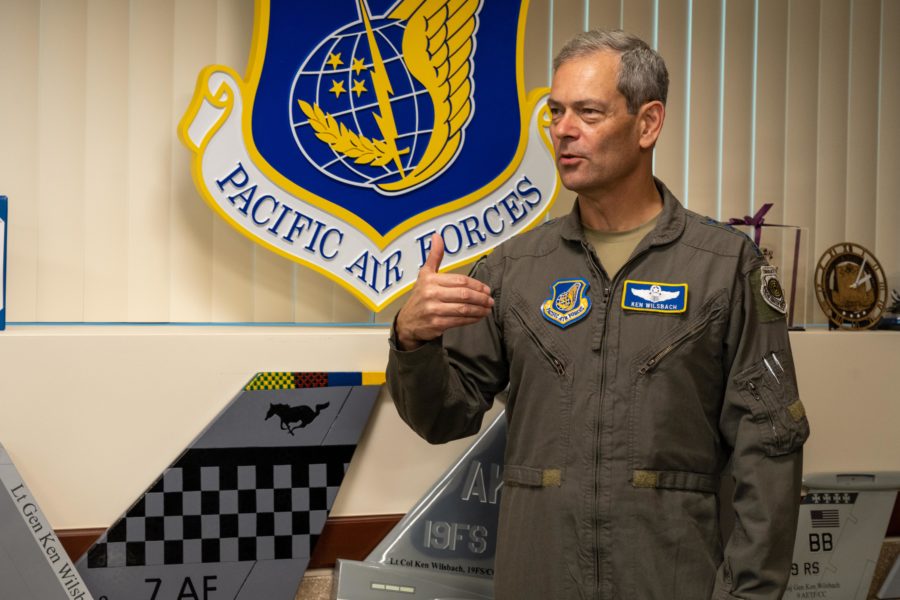JOINT BASE PEARL HARBOR-HICKAM, Hawaii – Combined bomber exercises between China and Russia in May demonstrated a degree of interoperability and a continued Russian operational presence in the theater, but quick intercepts by U.S. allies showed just how united the U.S. is with its allies, said Pacific Air Forces Commander Gen. Kenneth S. Wilsbach.
More than 100 days after Russia’s grinding assault in Ukraine, four Chinese H-6 bombers and two Russian Tu-95 bombers exercised together May 24 near Japan and the Republic of Korea. The U.S., Japan, and South Korea responded promptly, scrambling jets to intercept the formation.
“While they are pretty well preoccupied with what’s happening in Ukraine, [Russia] hasn’t stopped operating in this theater,” Wilsbach said in an interview in his PACAF headquarters at Joint Base Pearl Harbor-Hickam, Hawaii.
Wilsbach chided China for its willingness to cooperate with the Russian military. “It just doesn’t play well, I don’t think, in the international community,” Wilsbach said.
The United States and China continue to compete fiercely he said, seeking to strengthen regional partnerships and secure basing and access rights. “There probably should have been a lot more outrage than there was that China’s kind of helping Russia,” he added. “Russia should not be helped by anyone given some of the atrocities and the like that have been happening in the Ukraine.”
Wilsbach suggested China furthered a false narrative prior to Russia’s invasion of Ukraine. “Xi said they’re not going to attack, and of course, they did attack right after the Olympics,” Wilsbach said, noting that Russian President Vladimir Putin and Chinese premier Xi Jinping met during the Olympics in Beijing. A day after the Olympics ended, Russia moved its Army into the occupied Donetsk and Luhansk regions of Ukraine, launching a full-scale invasion Feb. 24.
“Why did Xi say that? Was he wrong? Was he duped by Putin? Was he a part of the information warfare to deceive the world?” Wilsbach asked. “No matter how you answer that, it’s not good.”
Now China is exercising jointly with Russia, he said. “Joint operations with Russia … is tantamount to supporting the Russian military,” Wilsbach said. “I don’t understand why they would partner up with Russia in these times. But clearly, we see that two nefarious nations are working together.”
Wilsbach told Air Force Magazine that he did not perceive the Russia-China joint exercise as a threat to U.S. interests, but rather as an indication of coordination between the two potential adversaries. “The Russians and the Chinese had to do some measure of sharing there,” he said.
On the flip side, the Russia-China exercise gave the United States and its Pacific allies an opportunity to demonstrate their own ability to respond with a coordinated, rapid reaction.
“You saw the Japanese come out and intercept their formation, and you saw the Republic of Korea intercept their formation, you saw the United States come out and intercept their formation,” Wilsbach said.
“The Japanese, the Republic of Korea, and the United States [showed a] very highly coordinated response, tons of sharing,” he said of the trilateral relationship. “The sharing that occurred there between those three countries was pretty awesome.”


